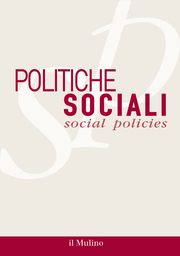Jessoula, M. (2015). Europe 2020 and the fight against poverty–beyond competence clash, towards ‘hybrid ’governance solutions? Social Policy & Administration, 49(4), 490-511. [Link]
Abstract
The supranational strategy ‘Europe 2020’ came along with two main innovations for social policy coordination in the EU: a quantified poverty reduction target and a new governance framework – the ‘European Semester’. Aiming to assess the effectiveness of the novel strategy in prompting the emergence of a European(-ized) anti-poverty arena – thus inherently multilevel and multi-stakeholder, as well as integrated (across policy sectors) – the article first presents the strategy evolution at the supranational level in 2011–14. Then it analyzes its implementation in five member states – Germany, Italy, Poland, Sweden and the UK – through the first four annual cycles. By directing the analytical focus on processes – rather than outcomes – in order to capture the domestic changes produced by the Europe 2020 anti-poverty strategy, the article argues that the latter marked significant discontinuity with the Social Inclusion Open Method of Coordination. The new strategy increased the political salience of the poverty issue both at the supranational level and in the selected member states, while leading to a ‘competence clash’ between national governments and the EU in Germany, Sweden and the UK. The emergence of such main tension substantially constrained the Europe 2020 potential in these three countries. Differently, in Italy and Poland, the implementation was smoother and the effects along the participation and integration dimensions were more evident. We contend that national policy legacies, the relevance of EU social funds, as well as partisan preferences, help to explain the differential effects of Europe 2020. The article concludes by suggesting that recent decisions at the EU level might eventually bring European anti-poverty coordination beyond soft-law towards ‘hybrid’ governance solutions.


